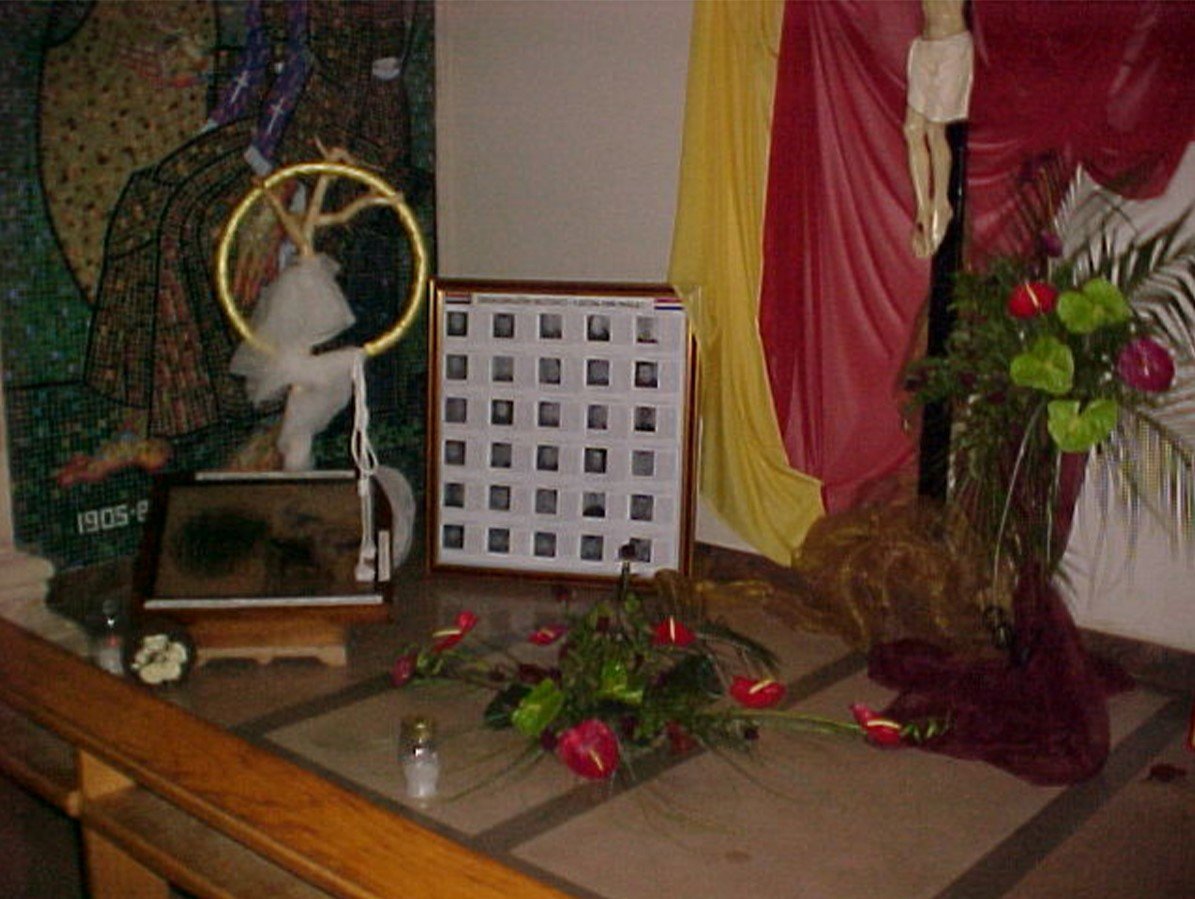NIES — Blood of the martyrs
This article was originally published in the July 13, 2012, print edition of The Catholic Missourian:
I heard none of it.
Franciscan Father Jozo Zovko was speaking to pilgrims from all over the world in the Shrine of the Assumption of Our Lady in Široki Brijeg, Bosnia-Herzegovina.
I was on a trip to Medjugorje with my mom. We had traveled by bus to the shrine, resting place for 30 Franciscan martyrs who in 1945 chose fidelity to Christ over their own lives.
I learned about them in the two hours between our arrival at the shrine and the beginning of Fr. Jozo’s meditation. I spent the rest of my time there consumed with rage. I could only think about how communist soldiers had tormented those holy men, dragged them from their home, murdered them, set fire to their remains and desecrated the Lord’s house.
Numb and exhausted at the end of Fr. Jozo’s talk, I wandered into the shrine bookshop, which carried a book Fr. Jozo had written about the Široki Brijeg Martyrs. I ran out to the bus where everyone else was waiting, borrowed some money from my mom, bought the book and promised God to pray the novena it contained.
I took it to Adoration and stayed up late that night learning more about the martyrs. They ranged from age 20 to 80. Some were newly professed; others were seasoned, world-class teachers, scholars and authors. Their Franciscan forbears had begun the friary, grade school and library in 1845, in order to preserve the Christian faith in the shadow of Turkish oppression.
“Separated from Bosnia,” read the stone plaque above the door of the Franciscan living quarters, “without bread and without roof, wealthy only of the faith in God, the Herzegovinian Franciscans laid the foundations of the convent with the church, this day, July 23, 1846, under the wing of Our Lady Assumed into Heaven.”
The shrine became a center and symbol of spiritual and cultural resistance to ongoing persecution.
But on Feb. 7, 1945, as the communists were solidifying control of what had become the nation of Yugoslavia, soldiers arrived at the seminary, shouting that God was dead. They ordered the friars to take off their religious garb, leave the friary and enter the workforce.
None would go.
A soldier tore a crucifix off the wall and threw it on the floor with an ultimatum: “Choose life or death.”
Each Franciscan picked up the crucifix, held it to his chest and looking to heaven, echoed St. Francis’ prayer: “You are my God and my all.”
All were executed, their remains burned and thrown into a nearby cave.
Fr. Jozo included in the book as much information about each of the martyrs as he could find. In each biographical sketch, he wrote, “He entered into the glory of heaven.”
“Our martyrs are witnesses of the faith and witnesses of the love toward God and toward our neighbors,” the priest asserted. “… With awareness and immense joy, they have offered their own lives, and they have testified their belief. … As the Church has always done and taught, they, too, have forgiven their enemies. They have prayed for their persecutors and they have blessed their executioners.”
He wrote of the legions of Christian martyrs who throughout history had manifested “immense love — love that burns hatred, that sets ablaze and destroys violence, changing and transforming everything into joy, into a feast, into the victory of the grace of the Lord.”
One of the soldiers who witnessed the martyrs’ bravery and lack of malice toward their executioners was so moved that he decided to become Catholic. Later, one of his sons became a priest and a daughter became a nun.
Local children grew up hearing about the friars’ heroic martyrdom. Many became determined to serve God with such singular devotion.
After the collapse of communism, the dissolution of Yugoslavia and the bloody civil war that followed, the shrine was restored and the martyrs given a proper resting place inside it. A cause for declaring them saints of the Church was opened in 1991.
I am no longer angry at the soldiers. With the martyrs, I pray for their forgiveness and salvation.
May the witness of the men who gave sacramental absolution to their own murderers never be lost on me or the rest of this world darkened by hatred and persecution. May the memory of their heroic virtue continue to help bring people to Christ.
May God, through the intercession of Our Lady of the Assumption and the holy Martyrs of Široki Brijeg, give us the confidence to stand with Him, no matter what, embracing the cross of our salvation.
And may He help us forgive anyone who causes us harm or unhappiness, especially when we stand up for Him and all that is true and good.






